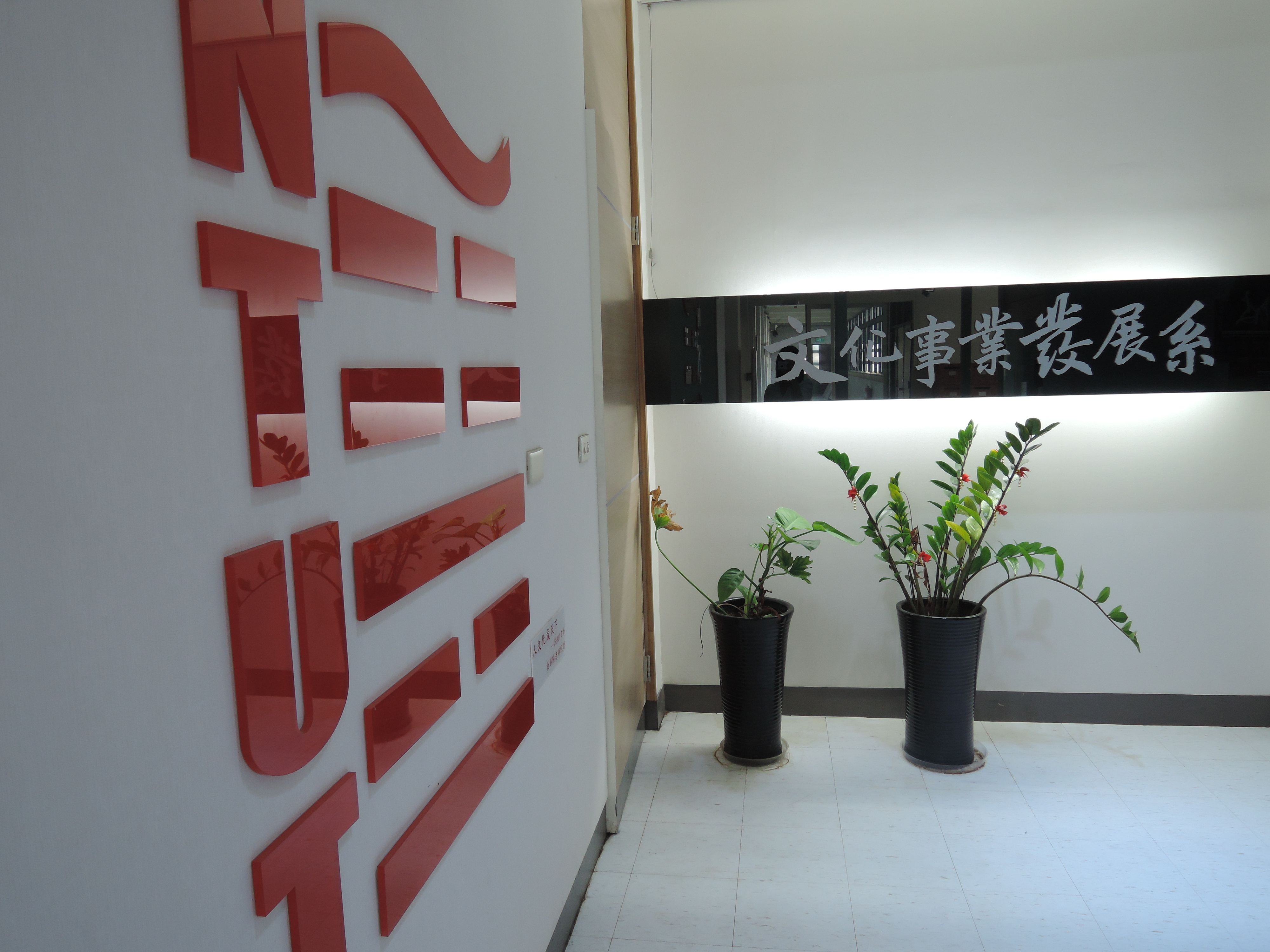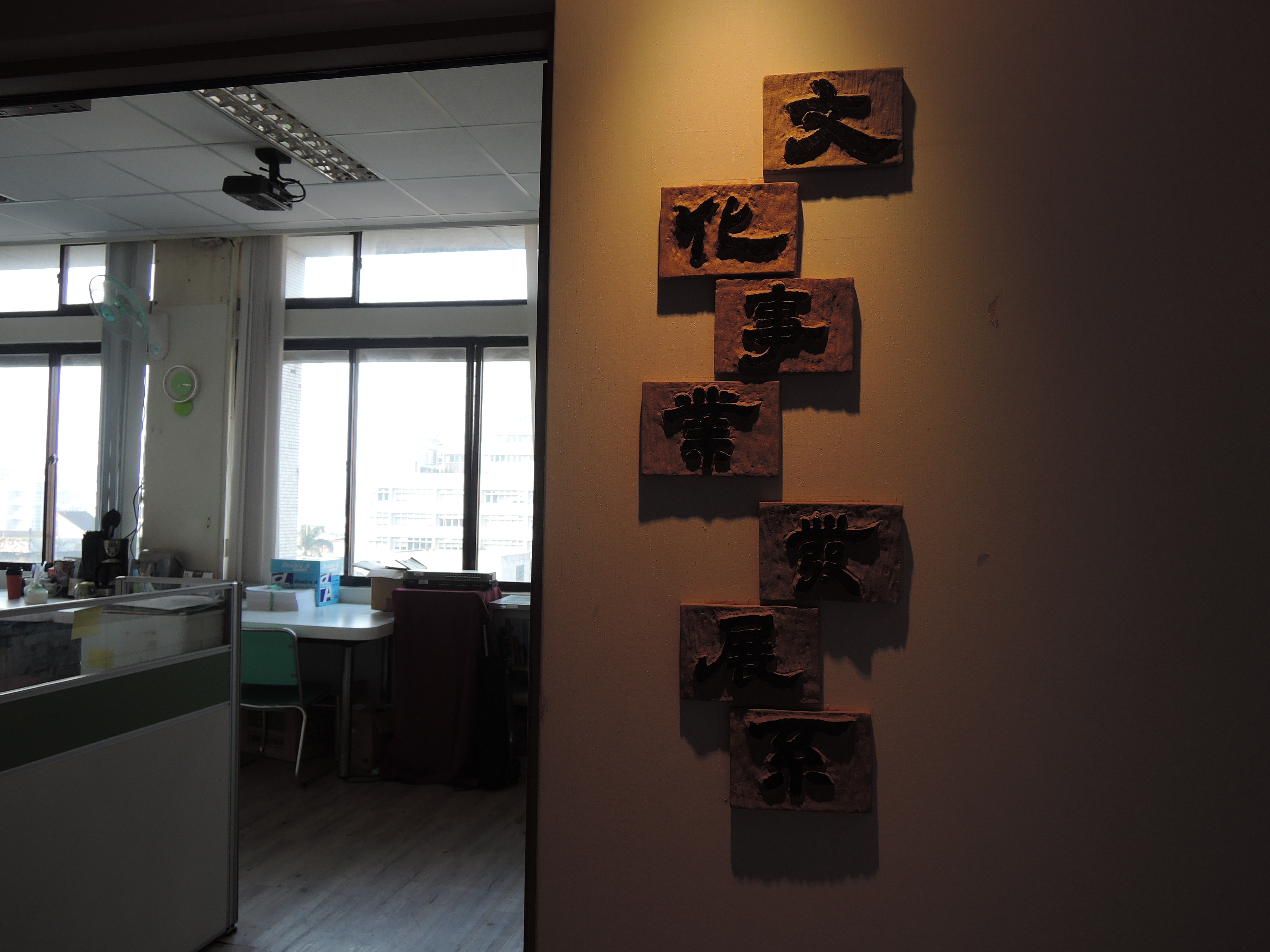History
ABOUT US
The Department of Cultural Vocation Development at National Taipei University of Technology (referred to as "the department" hereafter) was established in 2011. Recognizing the importance of culture as the foundation of a nation and people as the creators and maintainers of culture, the department aims to cultivate talents capable of sustaining, innovating, and managing cultural industries. The department offers a four-year undergraduate program and a master's program, which was established in the academic year of 2017 and admits eight students each year.
The department's teaching philosophy emphasizes both theoretical and practical approaches, integrating "cultural literacy, practical projects, and end-point design" into a cohesive curriculum that combines "activity, exhibition, and life planning." The curriculum design aims to deepen students' understanding of cultural literacy and planning capabilities, while also promoting creativity and innovation with the goal of "connecting the past and present, and embracing diversity." In alignment with national cultural industry development policies, the department collaborates with industry, government, academia, and research organizations to cultivate cultural promotion, cultural management, cultural aesthetics, and cultural research and development. Located in the heart of the metropolitan cultural district, the university enjoys convenient transportation and abundant resources, which are advantageous for the transmission and cultivation of culture.
The development of Taiwan's cultural and creative industry has become a new force in today's industrial and commercial environment, with its value and future potential not to be underestimated. In order to establish long-term development and unique characteristics, the department has formulated an educational model that meets the needs of the job market and students, in line with the university's educational objectives and strategies. Taking into account students' backgrounds, characteristics, and learning interests, as well as the characteristics and trends of the cultural and creative industry, and the development of future workplace requirements, the department has integrated cross-disciplinary resources within the university through course planning and teacher allocation. The educational objectives of the department were revised on October 19, 2022, by the departmental meeting, and are now focused on "cultural revitalization," "cultural governance," and "cultural practice," with "cultural literacy" as the foundation. The department aims to cultivate cultural industry professionals who possess integrative skills and can engage in independent creation or teamwork, with advanced knowledge and skills.
WHAT IS CULTURAL VOCATION?
"Cultural vocation" does not equate to "Vocation culture." "Cultural vocation development" does not equate to "development of vocation culture." Every industry, whether it be fisheries, agriculture, manufacturing, logistics, or finance, has its own traditional spirit and industry characteristics. These connotations are the "vocation (industry) culture" of each and every industry. The various measures taken to promote, package, reshape, or transform the culture possessed by various industries in order to strengthen their competitiveness are known as "developing industry culture" or "reconstructing industry culture."
The "cultural vocation" is one of many industries, which refers to the construction, development, transformation, and shaping of businesses based on culture (in a broad sense) as the basic material. Any business that uses culture as its foundation and uses text, images, sound, action, and display as means of expression, with the core focus on marketing culture and the goal of creating commercial value, such as cultural, artistic, literary, recreational, and lifestyle businesses, all fall under the category of cultural industry.
As the name suggests, the cultural industry uses culture as its material to establish businesses. It requires not only cultural awareness but also the technical ability to innovate and create. The cultural knowledge required for the "cultural vocation" is not deep but broad. It aims to build a comprehensive and inclusive "generalist ability" that uses various sources for reference and is able to make connections across disciplines rather than to become a "research expert." The technical ability required for the "cultural vocation" is "sufficiently capable rather than deeply skilled," aiming to have the ability to use innovative operations effectively, and when necessary, to have effective dialogue with technically skilled experts using a shared language.


